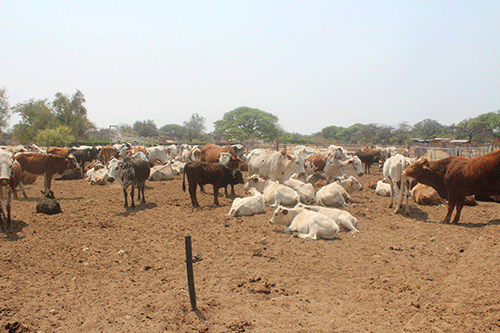The government has said it remains committed to addressing the land redistribution challenges that Namibia continues to battle in a more coordinated, inclusive and transparent manner.
Over the years, the Ministry of Agriculture, Water and Land Reform has been confronted and challenged by the question of “who qualifies to be resettled?”
The initial purpose of the government to resettle people, who do not have land, was for them to become self-sustainable be it in crop cultivation or animal husbandry.
However, looking at some farmers countrywide who got resettlement farms, some of them are not making any progress as they lack capacity and effective farming implements.
Namibians qualify for land redistribution due to historical circumstances regarding land dispossession.
It is against these disputes that the ministry reviewed the National Resettlement Policy of 2001.
The legislation is one of the instruments that guide land redistribution and the resettlement programme in Namibia.
Land reform executive director Ndiyakupi Nghituwamata said the government is committed to ensuring that the resettlement programme is fair and transparent.
The main goal of the policy is to ensure that the land acquired is fairly and equitably allocated and sustainably utilised in order to improve the quality of life of the beneficiaries.
Giving clarity around the policy, she explained the revised policy directs that in addition to allocating farmland on a leasehold basis, the option for freehold rights should also be granted to successful beneficiaries upon meeting the conditions of their lease agreement.
In addition, she noted there were concerns raised by the public that the policy should be reviewed since it was not inclusive enough and that some of the issues experienced on the ground were not explicitly covered in the document.
Another crucial challenge during the implementation process is that the ministry found itself in the position of land administrator and also implementer of some programmes and activities which were supposed to be carried out by other key government institutions or agencies. The pre- and post-settlement support in the form of support services or packages and starting capital was identified to be essential and should be developed and offered to these resettled farmers. Likewise, Nghituwamata said the revised policy also directs that relevant institutional support should be established in order to ensure full stakeholder participation and coordination.
During the implementation of the policy, some gaps were identified that led to the policy review. These include a mismatch of the policy and criteria for the allocation of acquired land; and poor agricultural productivity on allocated land.
Others are the absence or inadequate pre- and post-settlement support; lack of effective monitoring and evaluation of the resettlement process and; poor stakeholder involvement and coordination.
The revised policy advances three resettlement models, namely high economic value, moderate economic value, and low economic value in order to address socially, economically and politically related issues thereby covering all kinds of landless, displaced, and destitute citizens in the country.
“Another weakness of the previous policy implementation was the lack of security of tenure for resettlement farmers. The effective monitoring and evaluation of implementation progress are underlined as the policy concludes by making provision for an implementation plan aimed at ensuring the attainment of the policy objectives,” Nghituwamata mentioned.
She indicated that all 14 regions were consulted in clustered meetings during the months of June and July 2017 followed by a national consultative meeting in Windhoek, adding all inputs from those meetings were incorporated into the revised policy.
After the consultative meetings, the ministry considered the revised policy and adopted the draft guiding principle, inclusive of inputs from the second national land conference which was held from 1 to 5 October 2018 in Windhoek. –anakale@nepc.com.na


